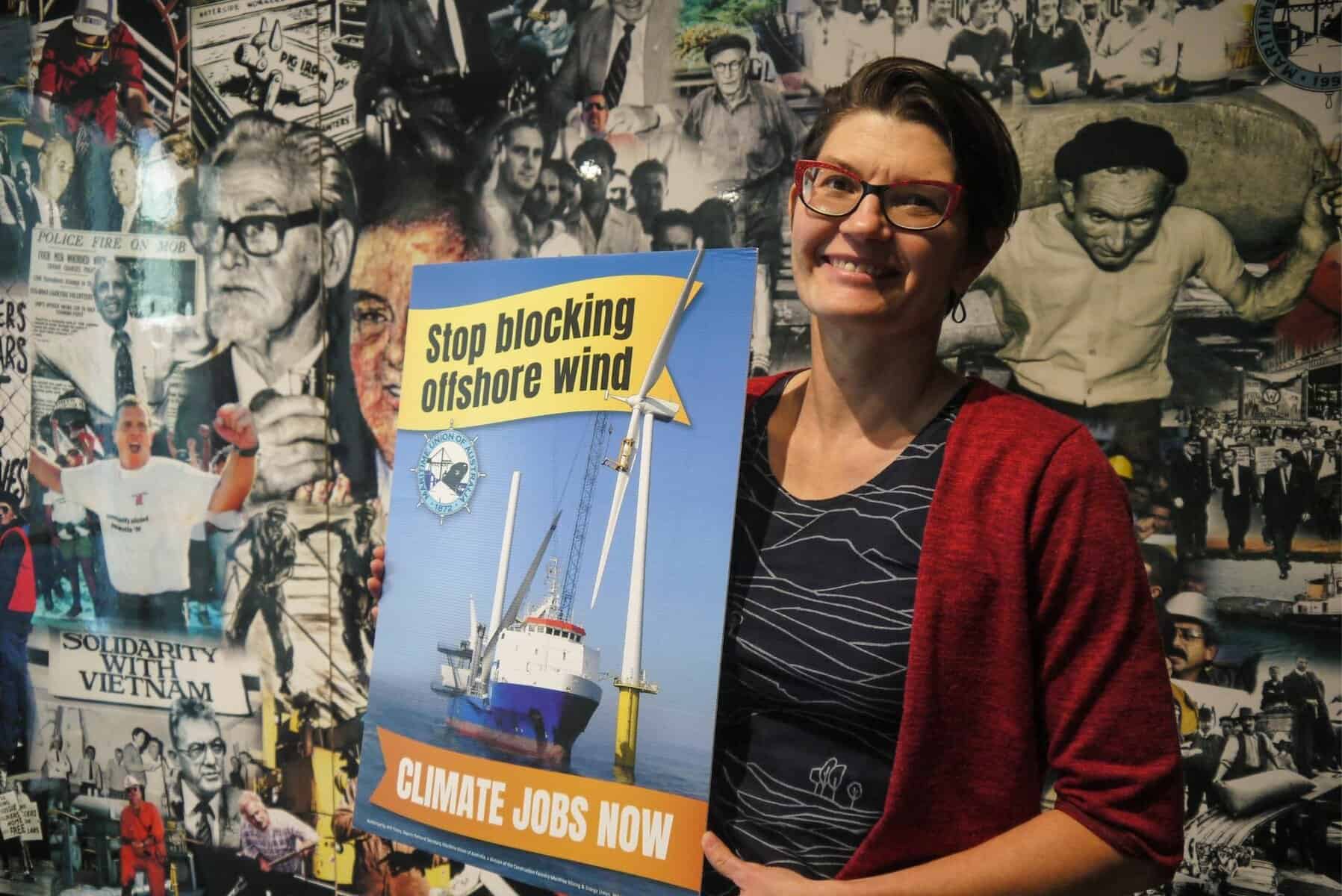Penny Howard on Securing a Just Transition – APHEDA People
As a young student unionist in 1990s Canada, Penny Howard cut her teeth in internationalist activism in the anti-globalisation movement.
“My political consciousness was formed at that time, in what we thought of as a global justice movement that students were part of, and that unions were part of, that had a critique of capitalism and what its institutions were doing to the planet and how we could take that on.
In the era remembered for the ‘Battle of Seattle‘, Penny joined demonstrations against the World Trade Organisation, and she protested against the visit of Indonesian dictator General Suharto to Canada for the 1997 APEC summit. In those historic protests, Penny learnt about what it means to show solidarity across borders:
“Global solidarity means that ultimately we are all humans, but we live in a world that is incredibly unequal, where there is a global system that perpetuates inequality that we all have an interest in taking on. We can’t improve that situation unless we work collectively on that.”

Today, Penny is working with the Maritime Union of Australia (MUA) as a Research Officer to develop concrete proposals and real examples of how to achieve a just transition to a sustainable future. For a union with a lot of members in fossil-fuel industries, like off-shore gas and coal export ports, Penny says:
“We’ve really got a stake in what happens with the transition to a low-emissions economy. We want to be on the front-foot. Looking forward, we can see a future where we’ve got good union jobs doing socially useful work.”
Penny believes that for the climate movement to win, “we need to see practical examples, so that people can see what a just transition means. We need the investment so that people can see what projects are going to be built, and what jobs are going to be created.”
Penny points to projects like the ‘Star of the South‘ off-shore wind development south of Gippsland, Australia’s first off-shore wind project, which the MUA believes could provide a blue-print for a wider investment into Australia’s plentiful wind resources.
“The climate movement will not win any of its objectives unless you can actually get the broader working class to be a part of and lead the climate movement.”
Penny says the Australian union movement must also look overseas to find examples of how workers are successfully building campaigns for a just transition. Union Aid Abroad – APHEDA, Penny says, plays an important role in this, because “we have a lot to learn from campaigns for a just transition in other parts of the world. The more that we can share those insights and lessons, the better.”
“Union Aid Abroad – APHEDA has consistently done great work over many years. They’re an important part of the union movement, as they play a role internationally and feed that international experience back into the Australian union movement. That’s worth supporting.”
For Penny, her membership of Union Aid Abroad – APHEDA forms one part of her activist tool-box, as it builds bridges of solidarity across borders:
“Global justice is a process of both identifying problems and a system, and building the campaigns and political movements that can unite people within countries but also across countries. That movement of working class people and the communities that they’re a part of is the only power that has the capacity the system and to really change the priorities.”
Globalise your Climate Action!
The work of building global solidarity depends on the contributions and efforts of thousands of union members like Penny. You can globalise your climate activism by becoming a member of Union Aid Abroad – APHEDA today!
